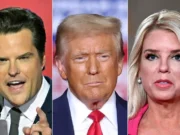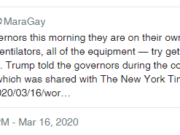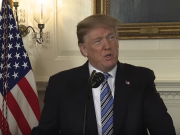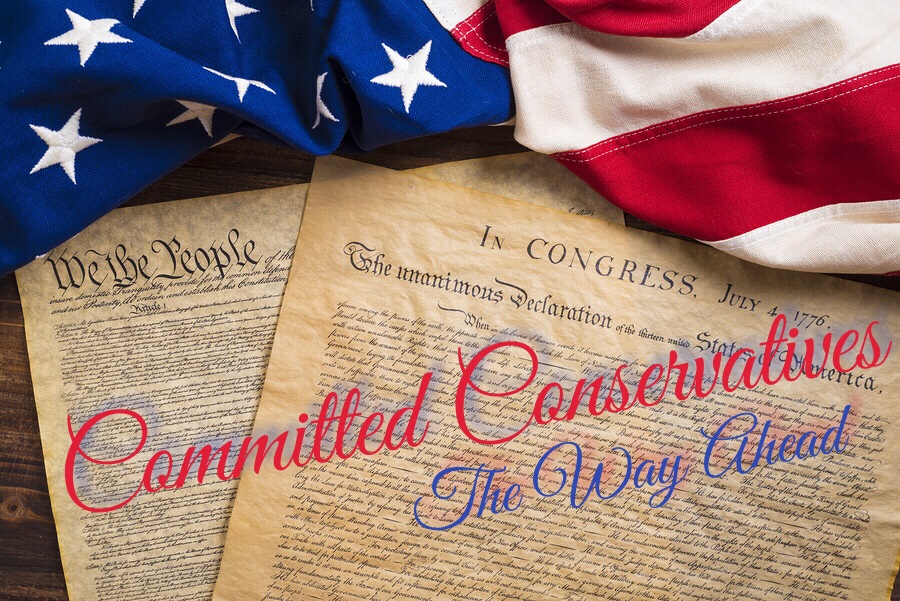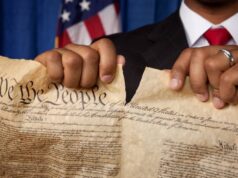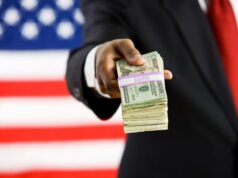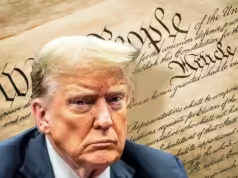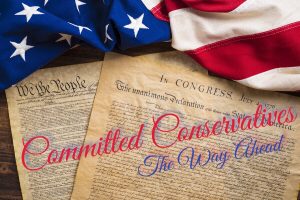Lawrence Tribe is a renowned expert in Constitutional law. The Harvard Law Professor, together with Norman Eisen and Richard Painter, ethics lawyers who served under two presidents, has written what the trio describes as a legal “brief” on the Emoluments Clause. This political document sets out their view of how Mr. Trump will be in violation of the “Emoluments Clause” the day he is sworn in as President.
Their “brief” has been quoted, forwarded, tweeted, posted, and relied upon by the media, democrats, and anti-Trump adherents. Most google searches on the Emoluments Clause turn up this “brief” or a story linking it. Every week, reputable media host one or more of the authors to discuss their “legal” conclusion. Mr. Tribe and his colleagues created this piece for that purpose. In fact, they were counting on the weight of their credentials to promote their unproven, thinly reasoned, dubious legal theory that Mr. Trump will be in violation of the Emoluments Clause due to alleged business conflicts related to his companies. The opinion piece, published by Brookings, is an eighteen page misdirection that neither properly analyzes the law nor the pertinent facts. It is a political argument to delegitimize Mr. Trump with political conclusions devoid of legal authority on the critical point.
When I first heard of the piece, I laughed it off. Then a twitter user wrote, and I paraphrase, I’ll take Mr. Tribe’s opinion over yours any day. That’s when I realized that Mr. Tribe and his colleagues were misusing their legal franchise to portray political opinion as legal truth. Legal arguments, however, are based on the application of facts to law and not on a person’s curriculum vitae. As an at times harsh critic of Mr. Trump, I will explain why Hillary Clinton supporter and Barack Obama fundraiser Laurence Tribe is incorrect in his ‘legal’ theory, and why there is virtually no scenario … none … under which Mr. Trump will run afoul of the little known Emoluments Clause in the manner he and his co-authors suggest.
Here is the clause:
No Title of Nobility shall be granted by the United States: And no Person holding any Office of Profit or Trust under them, shall, without the Consent of the Congress, accept of any present, Emolument, Office, or Title, of any kind whatever, from any King, Prince, or foreign State.
There is no Constitutional case on record applying this clause. It is a reasonable reading that the Presidency is “any Office of Profit or Trust,” and a 2009 Office of Legal Counsel opinion concluded that the Emoluments Clause applied to the President, though more than one scholar disagrees. On this threshold issue, I will accept that it does apply to the President and analyze and address the obvious flaws in the Tribe/Eisen/Painter theory. First, let’s clear out the easy points of agreement.
The President cannot accept a title of nobility. Queen Elizabeth cannot make Mr. Trump a knight. Mr. Trump cannot accept a gift, an Office, or a Title, of any kind whatever from another country. So, let’s bang this out. Mr. Trump can’t take a job, title, grant of nobility, or gold necklace from a foreign government, unless Congress approves. Again, team Tribe does not suggest that Mr. Trump will be getting a title, job, nobility, or even fancy cuff-links from a foreign government.
This leaves us to resolve the meaning of the term “emolument.” If one were to analyze this term under the modern definition, one would find that emolument essentially means salary or compensation under employment. With that that modern, narrow definition, Mr. Trump again appears at no legal risk. If, however, one looks at the original intent and common use of the term emolument at the time of drafting of the Constitution, the scope of the term is much broader as Mr. Tribe and his team note. In the 18th century, emolument essentially meant “profit” or “advantage.” It is this reading that greatly concerns Mr. Tribe, and on this meaning that he seeks to suggest that if while President Mr. Trump’s company should “profit” or obtain an “advantage” then Mr. Trump violates the Constitution based on the intent of the founders. On page 10 of their opinion piece the authors jump from what the law says about an individual office-holder to what they think it means with respect to a corporation. It is at that precise point that they jumped the proverbial legal shark.
There are innumerable problems with the argument that Trump’s pre-existing, corporate interests, to be uncontrolled by him, engaging in commercial transactions, would trigger a violation of the Emoluments Clause. Put aside Mr. Tribe’s disdain for originalism. As an originalist, I accept his conversion. Tribe, however, leaps from embracing originalism anew to his actual legal philosophy that there is what he has called an “invisible Constitution.” His argument in support of his position on the Emoluments Clause is indeed invisible in the Constitution. To get to the invisible argument, however, he first must embrace originalism in a small, narrow, measure. He must have that original definition of emolument. That’s fine. Let’s use the 1789 definition and application of the Emoluments Clause to Mr. Trump to analyze if he is in real legal jeopardy. Let’s also use the 1789 understanding of private corporation law as well. It is at that point where the Tribe theory and his half-embrace of originalism collide with reality.
When the states approved the ratification of the Constitution, there were no private corporations in England or the colonies. In fact, the first private corporation in the United States did not come into existence until 1813. In short, it could never have been the original intent of the founders to apply the Emolument Clause to a legal fiction that did not then exist. It was instead a clause designed to prevent personal profit and advantage by an “individual” office-holder. The leap from a violation stemming from personal profit to, by extension, a violation stemming from a pre-existing corporate interest engaged in commercial transactions is a complete legal sleight of hand. Nonetheless, it is worthy of exposition to elucidate the depth of its incorrectness.
Tribe and his team concede the Emoluments Clause springs from English history when they write, “[u]ltimately, the theory of the Emoluments Clause—grounded in English history and the Framers’ experience—is that a federal officeholder who receives something of value from a foreign power can be imperceptibly induced to compromise what the Constitution insists be his exclusive loyalty: the best interest of the United States of America.” That is a history without private corporations, and a history that focuses on stopping personal conduct amounting to taking bribes for influence by individual office-holders. That’s the original meaning and intent. Certainly, no one argues that the First Amendment does not apply to social media because it did not exist in 1789. Likewise, no one credibly argues that the Second Amendment only applies to muskets. Those individual rights of speaking freely or bearing arms remain individual rights, even if the means of exercising those rights change. Arguing that the “Emoluments Clause,” designed to prevent an individual office-holder from taking foreign profit or advantage, now applies to a corporation is a kettle of an entirely different fish. Corporations not only did not exist in private form at the time, but no reading of the Constitution equates corporation with office-holder. I repeat; corporations are not “office-holders.”
Tribe and his political cohorts assume that an individual office-holder and the corporation to which an office-holder might belong, own, control, or have an interest are the same thing under this Clause. Corporations, as the left likes to tell us, are not people. Indeed, no body of law assumes that individuals, even as sole owners of a corporation are one in the same with a corporation. As Mr. Tribe and his colleagues know, a corporation is a separate and distinct legal entity from an individual. Even in cases of business fraud and bribery, to reach an individual’s alleged wrong doing one must prove the corporation was a sham, not engaged in legitimate corporate activities, and designed instead with the purpose to artificially shield an individual’s wrong-doing from legal remedies. Yet the entirety of the trio’s analysis erases and ignores this critical legal precept to simply equate Trump with his corporation and to make “corporation” synonymous with “office-holder.”
The political theory of Tribe and his team is weaker than just that assumption that office-holder equals corporation. They also assume that even if office-holder and corporation were the same under the law, that a corporate interest that existed prior to taking office could violate the Emoluments Clause if the entity, after a shareholder takes office, without the office-holder’s knowledge or direction, engages in a fair market transaction, from which the entity may or may not ‘profit.’ This is complete sophistry. The legal theory first fails because corporations are not office-holders. It then fails because there is no basis in law or fact to suggest that a fair-market transaction made by the corporation resulting in a profit or advantage to the corporation is even subject to the Clause. We don’t even have case-law to suggest that a fair market transaction by an office-holder as an individual runs afoul of the Emoluments Clause.
Legal analysis is nothing more than applying facts to that law, assuming such law’s meaning is settled. For example, even if one thought the Emoluments Clause reached not just Mr. Trump, but also legal entities in which he has an interest, the inquiry would not end there. What if Mr. Trump has no knowledge of the transactions and no control of the entities at the time of the profit or advantage? What if the entities don’t gain an advantage or profit? What if they do gain an advantage or profit from dealing with a foreign entity but that profit or advantage is not at odds with the interest of the United States? If Russia rents three hotel rooms and a banquet hall from Trump Plaza, does Mr. Trump “profit?” Does Trump Plaza even profit? What if Trump Plaza loses money that day, week, or year? What if Trump Plaza profits but Trump does not, thereby having loses in his total organization? Here’s an even greater question, who determines if Russia paid more than fair market value such that there was an advantage to the corporation and hence Mr. Trump?
What is profit or advantage? Is it ‘profiting’ in the 1789 sense of the word to engage in a commercial transaction where consideration is given for services and/or products in return? The law of contracting as it developed at that time of our founding (“original intent”) required merely a peppercorn’s worth of consideration, and looking behind the transaction for the purpose and value was deeply frowned upon. Who is to say there has been either a profit or an advantage in that commercial transaction that is neither run by Mr. Trump, nor to which he may not even be privy? If profit or advantage is to be read as broadly as possible, then did Mr. Obama violate the Emoluments Clause too? When Mr. Obama negotiated to send billions of dollars in unmarked foreign currency in a straight transaction for the return of hostages and continued relations in support of his a politically important nuclear deal, did Mr. Obama profit? Was the transaction good for him? Did it give him a political profit or advantage while being bad for the United States? It is more plausible to prove that Mr. Obama engaged in a transaction for personal political profit with Iran than it ever will be to prove that Trump sought to rent rooms to a foreign country at Trump Plaza for his own profit.
All of these wacky Tribe scenarios would need to be tried by Congress. The House would bring the charges and the Senate would try the President. No one believes that to be realistic even if the Congress were run by democrats. If the Congress lost its mind and decided to try to convert the definition of office-holder to include corporation, and it sought to expand the definition of emolument to mean profit or advantage from corporate, fair-market transactions outside Trump’s control, it would still need to prove that the emolument caused the President to act against the interest of the United States? What if Mr. Trump’s business takes a proven profit or advantage from Iran, and then he sticks Iran to the advantage and delight of the United States? The intent of the Clause is, according to this trio of authors, to prevent a foreign power from having undue influence on the United States to her disadvantage.
If the facts were entirely different, this political theory by these lawyers would make a better argument for a case against Mr. Trump. If Mr. Trump were to set up a corporation after being elected for the purpose of his advantage or profit in dealing with foreign powers and doling out US favors, that would certainly bear close scrutiny. A President who gets elected and then creates a sham corporation for the purpose of accepting bribes and giving foreign favors might face impeachment under many legal theories. Even if that very troubling scenario were the facts now present, and it is not, a Congress in an impeachment proceeding would need to find first that the Emoluments Clause extends to corporate interests. It would then need to pierce the corporate veil and prove that Trump’s entire business purpose was to profit from his office and that he directed the scheme in order to profit or gain an advantage. Moreover, consistent with original intent, Congress would need to prove a President took such profit to the disadvantage of the United States. Nothing in the facts of this election or Mr. Trump’s conduct supports a set of facts that raise even the slightest inquiry under the Emoluments Clause.
A President is punished for violations of the Constitution or his duties through impeachment for “high crimes and misdemeanors.” Is this clause a high crime or misdemeanor? Is it a criminal charge? Does the Emoluments Clause impose an intent element to it? In order to violate the Clause, and presumably be subject to punishment under it, must it not be a crime? If that’s true, a crime requires some showing of intent. What would that intent showing be under the actual facts now known about Mr. Trump and his businesses? Mr. Trump intended to become President to rent out rooms and jack up rates to foreign governments in order to add to his billions of dollars? Are we going to have fact witnesses come forward and show the President directed that Trump Plaza give a good deal to Bahrain on a buffet breakfast and then, in turn, provided something of greater value to Bahrain against the interests of the United States? Are we to assume this whole campaign for President and Trump’s expenditure of 10’s of millions of dollars was a gambit to become President and then profit from it?
The entire conclusion that Mr. Trump runs afoul of the Emoluments Clause is hoisted on its own petard. It is based on the application of false facts to a finding of incorrect law. As political gruel, this feeds the partisan masses nicely. If you don’t like Mr. Trump this all sounds plausible. And, when mainstream media outlets run this legal theory, they never introduce Mr. Tribe as a Hillary Clinton supporter and Barack Obama fundraiser. They refer to him as a Constitutional expert from Harvard. That’s how team Tribe wants it played. I suppose to some it sounds authoritative when a Harvard professor suggests that Mr. Trump ran for president to profit from foreign companies in violation of the Constitution. For most of us, it sounds nutty. These “experts” have found in Tribe’s invisible Constitution that the man who ran for office presiding over a multi-billion dollar real estate empire will be in violation of the Constitution the minute he is sworn in because Trivago might give a foreign bureaucrat a good deal on a room.
It is without legal doubt that standing to bring an action against Mr. Trump for violations of the Emoluments Clause lies solely with Congress. If Congress thinks it can prove this clause applies to corporations, and that Trump essentially took profiteering bribes for his advantage, and that his entire corporation was a fraud built for this purpose, then bring the impeachment and see how it goes. No serious lawyer thinks that is going to happen.
At best, these lawyers have properly identified and argued for a law that might require future Presidential candidates with international corporate interests to take some form of action prior to serving that would remove them from the appearance of impropriety in foreign transactions. For that, they should call their congressmen. Likewise, Mr. Tribe is certainly entitled to his belief that Mr. Trump is required to divest himself completely from his companies or be subject to political attacks that like his that undermine a Presidency. Indeed, I agree that as a matter of political strategy to minimize baseless, trumped-up political attacks, Mr. Trump should do just that. The difference is that the Tribe trio thinks the Emoluments Clause forces the President-elect to do so, an opinion that is not based on law, fact, precedent, or in any way, originalism.
I fear this now famous Emoluments tripe was designed as a political assault cloaked in the garb of legal authority. We may never be able to stamp out its legal incorrectness. Nonetheless, it had to be answered. Let me be clear on this; Congress is not going to impeach Mr. Trump under the Emoluments Clause for fair-market, commercial business transactions by his legal entities, and these lawyers know it.
*** Subsequent to drafting this piece, a lawsuit has now been filed based on this political theory masquerading as legal analysis. The action is neither based nor grounded in existing law, nor does it provide a good faith basis for the extension of existing law. As such, the case is per se frivolous and should subject its lawyers to Rule 11 Sanctions.
Update 6-12-17
CREW … a radical, left-wing, “ethics” front group joined with Maryland and DC today to file a new, “novel” suit against the President alleging that he is improperly carrying out his duties and profiting from “emoluments.” The suit, as described in the media and at a carefully choreographed presser tests the bounds of pleading, even before a likely friendly court. It has a zero percent chance of success, though it was only filed for political purposes and as another part of the war on Trump.
Update 12-21-17
Shocker … Judge dismisses an Emoluments Clause case. Keep in mind, this one was backed by “Crew,” an eminence front. This suit was strategically filed in front of a friendly court in a liberal jurisdiction, and it still lost.
Update 9-28-17
A DC Judge rules on the narrow issue of standing, finding solely for the purpose of “bringing” the action that Members of Congress have standing. Needless to say, this is narrow, yet still incorrect. On one hand, ONLY Congress may enforce the Emoluments Clause. That’s correct. However, the Court has no role Constitutionally in this process. What you have is disappointed Congressmembers using the Court for political purposes because legislatively, the rest of Congress does not share their incorrect view that the President’s companies have violated the Emolument’s clause by engaging in commercial, arm’s length, transactions.
Author: Richard Kelsey
Richard Kelsey is the Editor-in-Chief of Committed Conservative.
He is a trial Attorney and author of a #11 best-selling book on Amazon written on higher education, “Of Serfs and Lords: Why College Tuition is Creating a Debtor Class”
Rich is also the author of the new Murder-Mystery series, “The ABC’s of Murder,” book one is titled, “Adultery.”
Rich is a former Assistant Law School Dean and Law Professor. At Mason Law Kelsey conceived of, planned, and brought to fruition Mason’s Center for the Protection of Intellectual Property, known as CPIP, drawing on his expertise as a former CEO of a technology company specializing in combating cyber-fraud.
In 2014 he was elected by the graduating class as the faculty speaker at their graduation.
He is a regular commentator on legal and political issues in print, radio and on TV. Rich has appeared on hundreds of stations as a legal expert or political commentator. He provided the legal analysis for all stages of the Bob McDonnell trial and appeal for numerous outlets including NPR and WMAL.
Rich also writes on occasion for the American Spectator and CNSNews.com.
In his free time, Rich is part of the baseball mafia of Northern Virginia, serving on numerous boards and as a little league and travel baseball coach.
His Twitter handle is @richkelsey.







